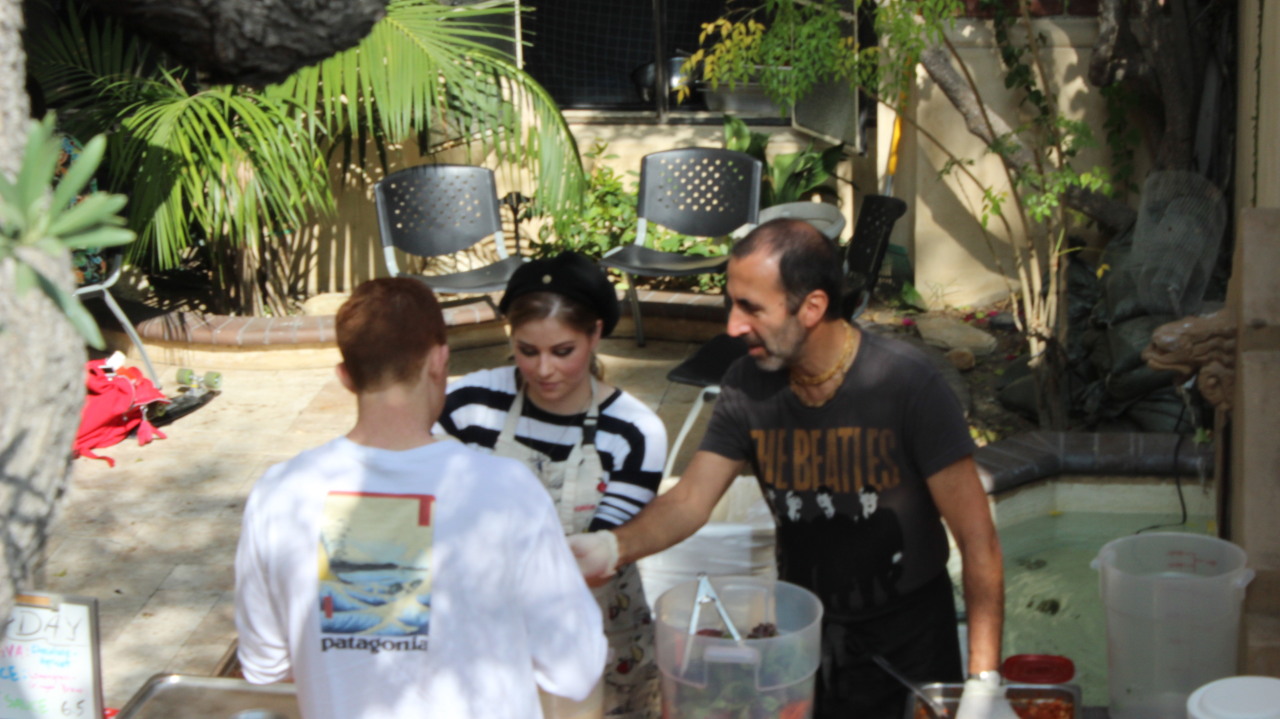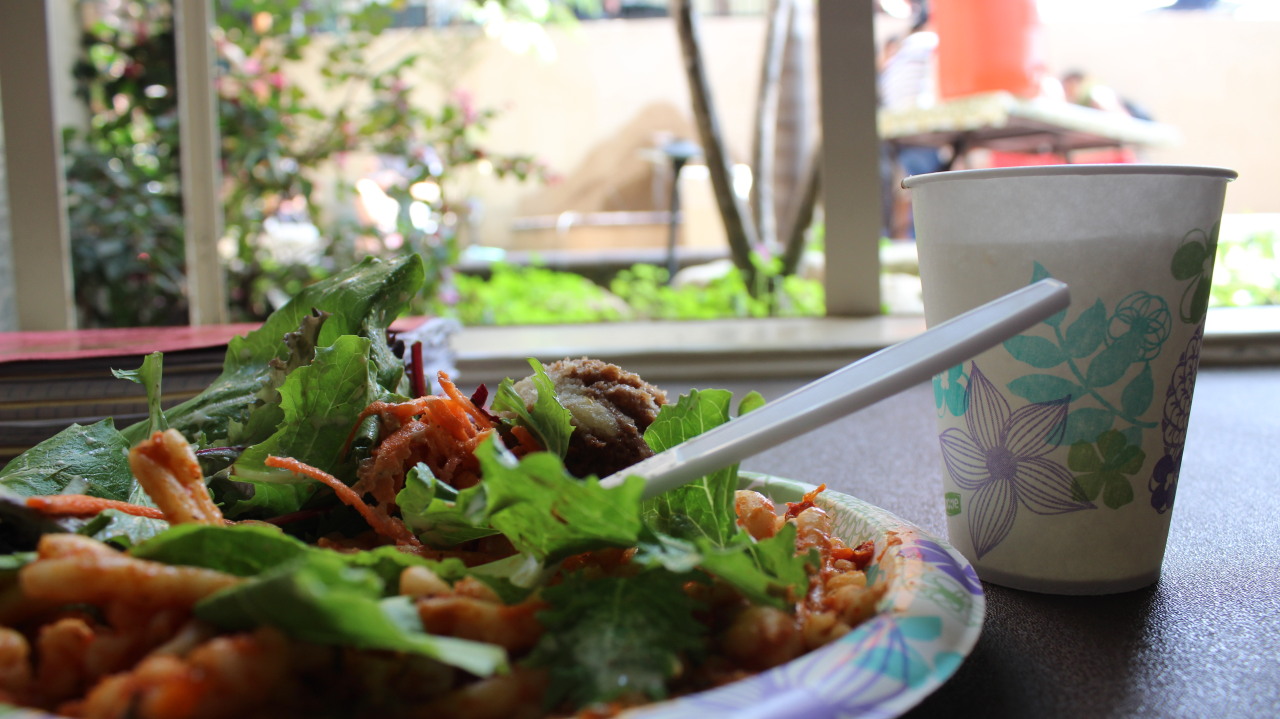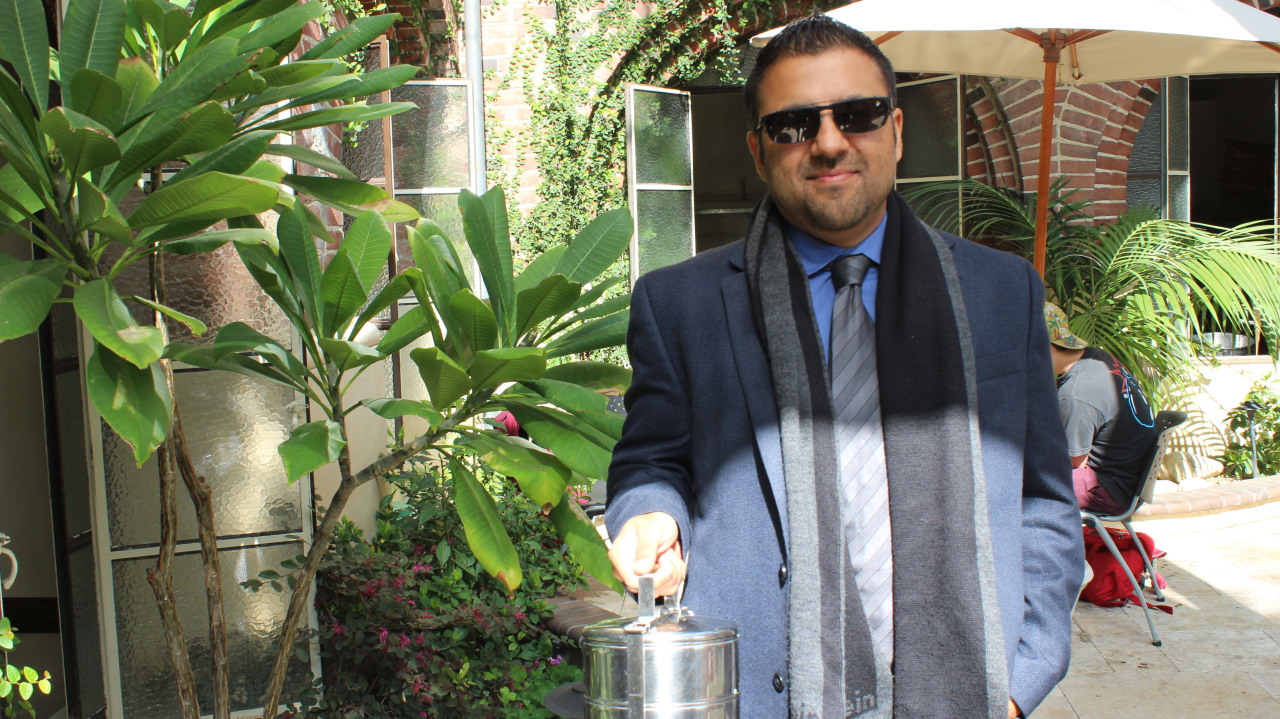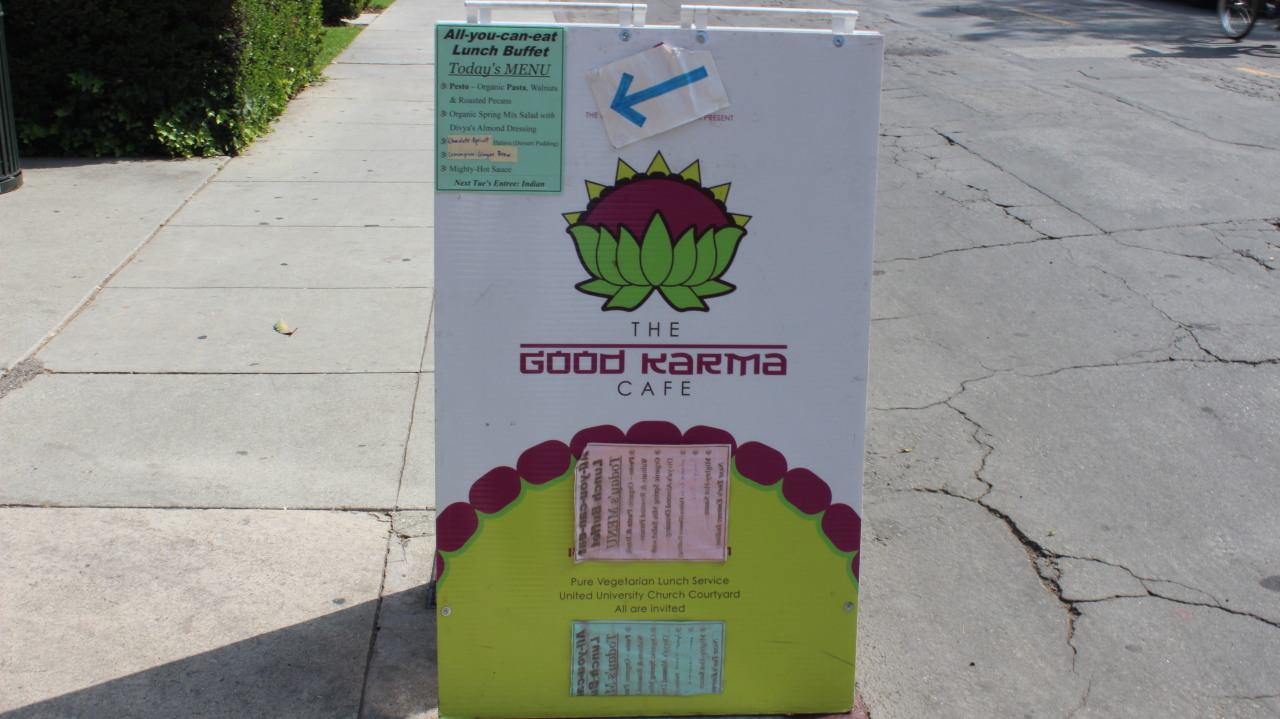The Good Karma Cafe: USC's Hidden Gem

As Neon Tommy interviewed Chef Sarvatma Das of the Good Karma Cafe, a curious student approached him and asked, "What is this exactly?"
"To put it bluntly," the chef replied, "you guys eat crap, I'm here to save you."
The Good Karma Cafe is a biweekly, all-you-can-eat vegan lunch service that takes place at the United University Church on the USC campus, serving Indian and Italian dishes from 12 to 2 pm on Tuesdays and Wednesdays respectively. Pasta (marinara or pesto) or khichri (an indian rice dish) is served along with salad, the chef's special almond dressing, halva (Indian dessert) and a refreshing beverage. The cafe encourages diners to bring a tupperware along to take home some food with them, and the price is only $10.
As chef, Das is the star of the joint. He was born in Buenos Aires, Argentina and moved to Brazil in his early twenties, where he encountered practitioners of the Vaishnava dharma, a devotional variant of Hinduism. Vaishnavism is a theological practice native to India, which has come to find an international following in modern times. One of its most prominent proponents was George Harrison, lead guitarist of the Beatles.

A distinctive feature of the Vaishnava dharma is an emphasis on certain dietary customs and traditions. Das spent around two years cooking for the other devotees at the ashram and was introduced to Vaishnava cuisine. "My cooking sucked," he said.
Eventually, Das moved to the U.S. and "hung out with a lot of Vaishnava chefs." Saying that these interactions greatly expanded his repertoire as a chef, not long after he started his own catering business.
A firm believer in the Vaishnava way of life, he initiated the Bhakti Yoga Club at the University of California, Santa Barbara - where he also ran a similar biweekly lunch program. One of the chef's greatest admirers during this time was Varun Soni, then a PhD student at the school. When Dr. Soni later assumed the position of Dean of Religious Life at USC, he offered the chef "a gig," said Das.
We asked Dean Varun Soni what makes Das' cooking different from the other dining options available in and around USC. "As part of the Bhakti tradition," he explained, the "act of preparing and serving food is spiritual practice."
The act of preparing and serving food is the chef's way of "serving God and mankind," he said. In the Vaishnava vernacular, such duty is called "seva." He considers the food "prasada," or an offering to God.

The chef prepares food according to the dietary restrictions of Vaishnavism, with a level of "theological sophistication" that provides an unmatched service for Hindu and Jain students at USC. These restrictions include a prohibition of meat, onions and garlic.
Although the cafe initially started as a way to provide an alternative dining option for Hindu and Jain students, the concept soon gained appreciation with a "remarkable cross-section" of people, said Dean Soni. He estimates that faculty and staff have been the leading "patrons of the cafe."
USC students and faculty members from a variety of backgrounds appreciate the food served at the Good Karma Cafe for its nutritional value. "The food here makes me feel really good," said Evan Furher, a junior majoring in Popular Music. "It gives me life force."
In a Yelp review, a user described the cafe as "the best vegan place around USC campus, if not in all of L.A."

According to Dean Soni, another reason the cafe is so popular is its ability to provide a sense of spiritual retreat, where "people can take a break from the pressures of life." Good Karma has a very communal vibe and its close proximity to the music school attracts a number of live musicians.
"My advertising is all the other eating joints around campus," Das joked.
Reach Staff Reporter Adi Radia here. Follow him on Twitter here.



